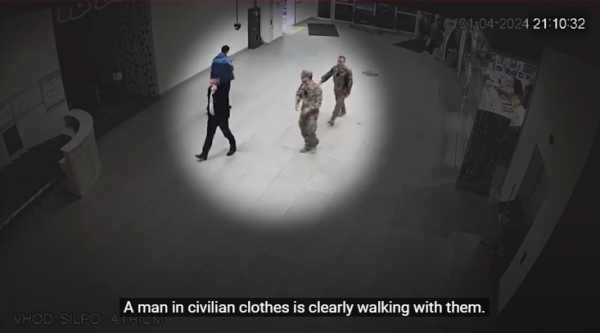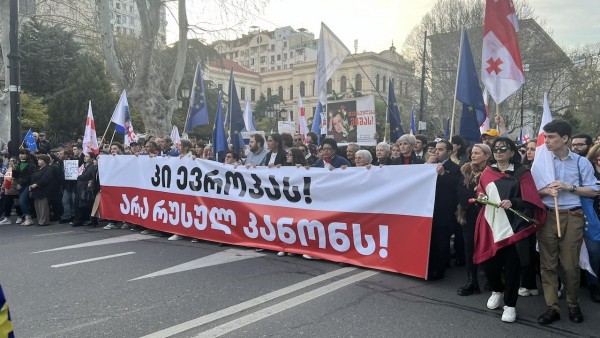“You don’t have to be a rocket scientist to know that if you control the media, you control public opinion”, Bulgarian freelance journalist Boryana Dzhambazova said during the IPI World Congress panel on media capture in Central Europe on September 17. In several countries in the region, governments have taken effective control over the media landscape by manipulating the market against independent players, instrumentalizing regulatory powers, and placing media in the hands of friendly owners. The panel was moderated by Beata Balogová, editor-in-chief of Slovakia’s SME newspaper.
In Hungary, the media has almost been fully captured by Vitkor Orbán’s Fidesz party, Márton Gergely, editor-in-chief of independent weekly HVG, said. “Currently, the majority of the Hungarian media have been organized into two huge outlets: the state media and the private KESMA group, which is loyal to the government”, he explained. “These outlets purely echo the side of the Hungarian government and do not talk to opposition candidates at all.”
This system of media capture complicates the work of the remaining independent journalists, Gergely added. “The Hungarian government makes sure no one talks to us anymore. At the beginning of the COVID outbreak, we wanted to go to hospitals to show the dangers of the virus, and portray the importance of vaccination. But even there, workers had to ask permission to talk to the press, which was rejected. So we are not getting information first-hand, which discredits the quality of our reporting.”
“The illiberal model of media capture exported from Hungary has already had a major impact on media across the EU & we are likely to see more of its effects in the coming years”, says Marius Dragomir, director of @CMDSatCEU and a leading academic expert on media capture. #IPIWoCo pic.twitter.com/RFdD2lo68x
— IPI-The Global Network for Independent Journalism (@globalfreemedia) September 17, 2021
Media capture is not limited to Hungary and is rapidly becoming a regional problem. Poland has been inspired by Orbán’s media model, Paweł Ławiński, deputy editor-in-chief of the Polish investigative platform Onet, explained. This has led to editorial changes at local media and the introduction of a media law that grants the government control over state media. “But it is not enough,” Ławiński added, “since the PiS-party recently proposed a law that prevents broadcasters outside of the EU from having a majority stake in media companies. So, broadcasters outside of the European territory that still air the voices of the opposition might lose their business in Poland.”
Surviving in a captured state
In media capture environments, the deck is stacked against independent voices. Media outlets that refuse to accept a pro-government narrative face grave financial challenges, Marius Dragomir, director of the Center for Media, Data and Society of Central European University in Vienna and an expert on media capture in Central Europe, explained. He identified four categories by which authorities use financing to control the media: public funding for state media; state advertisements to outlets that accept a pro-government narrative; state subsidies; and market disruption measures such as the introduction of laws that financially restrain critical outlets.
Independent media therefore need to find alternative ways to survive. Can reader subscription models help offset the state’s financial discrimination? For Gergely’s HVG, the model has succeeded in keeping the outlet alive. “Readers start to realize that when Hungarian readers don’t finance free media, they could just end up without objective news”, Gergely said. “That is why they fund us: they do not want any sensational reporting.”
However, in captured media environments, the downside of subscription models is that they limit the reach of independent news.“It is a big debate within the profession”, Gergely admitted. “Yes, we can be proud that our subscriptions model works in some cases. But we serve a smaller group than we want to. The average Hungarian does not have access to fair journalism anymore.”
To avoid media capture from happening, the practice must be recognized and questioned at an early stage, the panelists agreed. “When you speak about media capture, keep in mind it does not happen in one year”, Dragomir emphasized. “When a country experiences an early stage of media capture, it is important for media organizations to mobilize against legal changes.” Dzhambazova added: “In Hungary, journalists were raising worries for years, and now it’s too late to reverse that process. Bulgaria is not there yet, but it could be done in a few years.”
Despite the challenges, a high level of resilience was expressed by the panelists. “As Ławiński summarized: “We are not ready to stop reporting. This is our job and we will continue to fight for it.”



